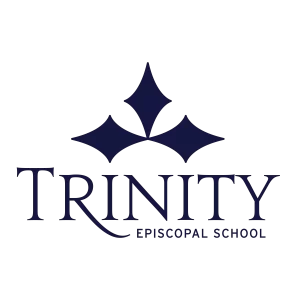Academics
Education • Faith • Achievement
At Trinity Episcopal School, academics reflect our whole-child approach to education. We balance student achievement with age-appropriate curiosity, creating an environment where students are challenged to grow while also discovering joy in learning. Our rigorous, excellently scaffolded, and vertically aligned curriculum ensures that each grade level builds upon the last, preparing students for long-term success.
Every child at Trinity is on a personalized learning journey. Our faculty uses multiple benchmark assessments throughout the year – including NWEA MAP Growth and DIBELS – to differentiate instruction and provide purposeful support. This approach allows us to guide each student toward their fullest potential, fostering confidence, curiosity, and academic excellence.
MAP Growth - Personalized Learning
What is MAP Growth?
MAP Growth is a nationally recognized, adaptive assessment tool that measures student achievement and growth over time. Unlike a traditional test, it adjusts in real time to each student’s performance, giving teachers a precise understanding of what a student is ready to learn next.
How often will my student take it?
Students take MAP Growth three times per year: fall, winter, and spring. This provides a clear picture of progress, highlights areas of strength, and identifies opportunities for growth throughout the school year.
Who takes it?
MAP Growth is administered to students in grades K–8 across reading, language, and math. Trinity students in 4th-8th grade also take the science assessment.
How is it used?
Teachers use the results to design personalized learning paths, create targeted small groups, and adjust curriculum pacing. Parents also receive reports that show how their child is performing relative to both national norms and their own previous results. MAP Growth ensures that every student is challenged and supported appropriately on their unique journey.
DIBELS – Reading Fluency Assessment
To strengthen literacy development, Trinity uses DIBELS (Dynamic Indicators of Basic Early Literacy Skills) for students in K5 through 5th grade. This assessment measures essential early reading skills, including phonemic awareness, fluency, and comprehension.
DIBELS provides teachers with timely data that identifies students who may need additional support, as well as those who are ready for enrichment. Results are used to shape classroom instruction, guide reading groups, and ensure every child continues forward with confidence as part of their personalized learning journey.
Student-Led Conferences – Building Ownership in Learning
At Trinity, we believe students should be active participants in their learning journey. Our student-led conferences empower students to take ownership of their academic progress and personal growth.
During these conferences, students present their work, reflect on their progress, track their data, and identify meaningful goals for growth. They share both strengths and opportunities for improvement, developing confidence, self-awareness, and communication skills while reinforcing our core value of Aspiring to Excellence.
By investing students in their own learning, we are not only encouraging achievement in the present but also preparing the next generation of leaders who are reflective, resilient, and ready to serve.
Trinity at a Glance
296
Total Enrollment
9:1
Student:Teacher Ratio
31%
Minority Student Population
16
Average Class Size
53:47
Female to Male Student Ratio
22%
Students Receiving Financial Aid/Scholarship
100%
Student Participation in Service Learning Opportunities
62%
1st-8th Grade Students Scoring Above 60th% on NWEA MAP Growth Testing
K3-K5 Curriculum Overview
Starfall Curriculum
Our youngest learners begin with Starfall, a play-based, literacy-rich program that introduces essential pre-reading, phonics, and math skills. K3 students utilize the PreK4 curriculum, while K4 students slow the pace and work with the K5 level curriculum to build a strong foundation.
Illustrative Mathematics (K5)
Beginning in K5, students are introduced to Illustrative Mathematics, which emphasizes problem-solving, conceptual understanding, and building strong number sense.
1st-5th Grade Curriculum Overview
HMH Into Reading
Our literacy instruction is guided by HMH Into Reading, which integrates phonics, vocabulary, comprehension, and writing. Novel studies are woven into the curriculum beginning at the end of 2nd grade to deepen students’ engagement with literature.
Illustrative Mathematics
Students continue to grow as problem solvers and mathematical thinkers with Illustrative Mathematics, engaging in real-world applications and building a solid foundation for accelerated math pathways.
Shurley English
To develop grammar and writing skills, students use Shurley English, a structured, interactive program that provides tools for strong communication.
D'Nealian Handwriting
Students learn handwriting using D’Nealian Handwriting, which transitions into cursive instruction midway through 2nd grade. While cursive writing is not required, it is taught as a valuable skill.
HMH Into Science
Science comes alive with HMH Into Science, where students explore inquiry-based investigations that foster curiosity and critical thinking. Visit HMH Into Science
Savvas Social Studies
Through Savvas Social Studies, students build an understanding of history, culture, and citizenship, gaining the knowledge and skills to participate in an interconnected world.
6th-8th Grade Curriculum Overview
HMH Into Literature
Building on the foundation of early grades, students transition into HMH Into Literature, developing advanced comprehension, analysis, and critical thinking skills as they engage with diverse texts.
Illustrative Mathematics
Middle school students continue on an accelerated math track, with the opportunity to take Algebra I in 8th grade.
Shurley English
Middle school students continue to strengthen grammar and writing through Shurley English, which equips them with clarity, accuracy, and confidence in communication.
HMH Into Science
With HMH Into Science, students engage in labs, inquiry projects, and real-world applications that prepare them for higher-level scientific exploration.
Savvas Social Studies
Through Savvas Social Studies, middle schoolers explore deeper historical perspectives, government structures, and cultural studies, helping them grow as thoughtful global citizens.
Curriculum Overview
Grade Level
Math
Reading & Literature
Writing & Grammar
Handwriting
Science
Social Studies
Notes
K3-K4
Starfall Math
Starfall PreK–K curriculum (literacy-rich, pre-reading)
Integrated in Starfall
D’Nealian Handwriting Introduction
Integrated in Starfall
Integrated in Starfall
K3 uses PreK4 curriculum; K4 slows down with K5 level
K5
Illustrative Mathematics
HMH Into Reading
Shurley English
D’Nealian Handwriting
HMH Into Science
Savvas Social Studies
Builds strong foundation; begins structured
1st-2nd
Illustrative Mathematics
HMH Into Reading + Novel Studies (introduced end of 2nd grade)
Shurley English
D’Nealian Handwriting (cursive taught mid-year in 2nd)
HMH Into Science
Savvas Social Studies
Strong focus on reading fluency and comprehension
3rd-5th
Illustrative Mathematics
HMH Into Reading + Novel Studies
Shurley English
D’Nealian Handwriting (cursive skill taught, but not required)
HMH Into Science
Savvas Social Studies
Deepens comprehension and analysis skills
6th-8th
Illustrative Mathematics (Accelerated Track with Algebra I in 8th)
HMH Into Literature + Novel Studies
Shurley English
—
HMH Into Science
Savvas Social Studies
Click to Learn More About Curriculum
Who Will Your Student Become With A Patriot Education?
Our graduates are bold leaders, creative innovators, and driven changemakers.
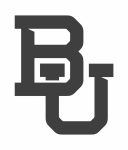
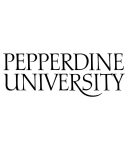
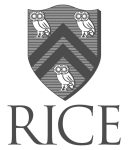
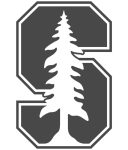
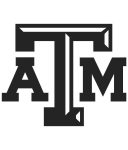
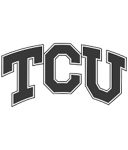
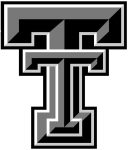
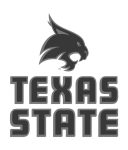
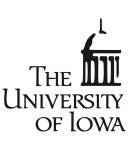

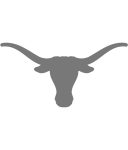
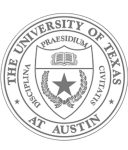
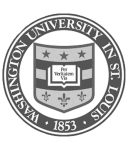
Navigating the Journey of Intellectual Growth.
Trinity cultivates high achievers and well rounded students. Trinity uses a wide array of tools to help your child be the best they can be.
45% of our students, grades 2nd-8th, rank in the top 5% nationally on ITBS testing
96% of our students, grades K5-3rd, score above grade level expectaion on DIBELS testing
Trinity alumni are only 10% of the St. Joseph High School population, but make up 50% of the National Merit Scholars and 50% of the top honor graduates.
